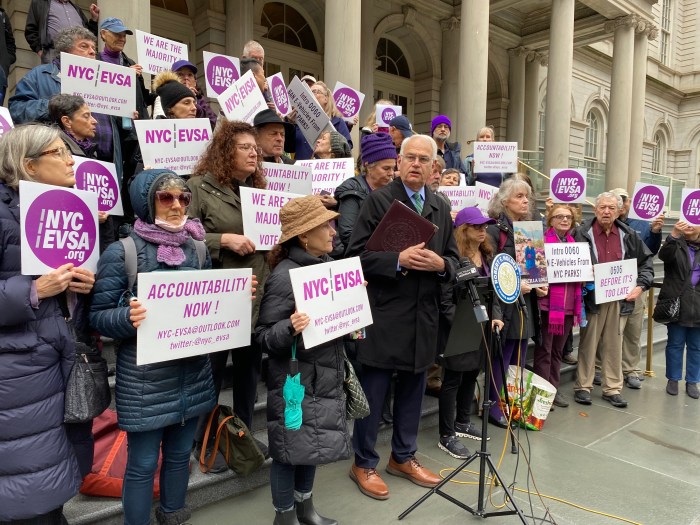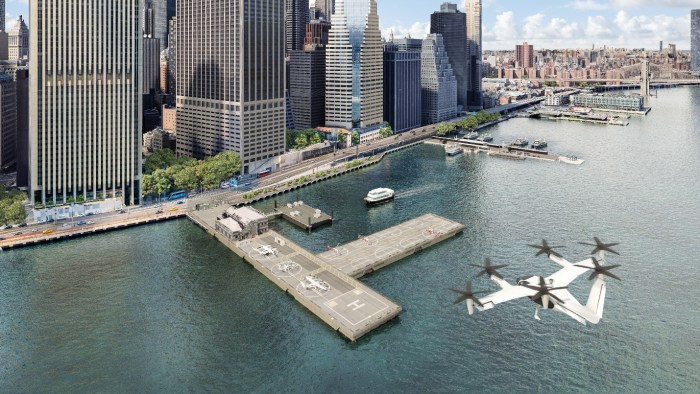The city has sold only 350 of 2,000 taxi medallions meant to hit the streets in wheelchair-accessible cabs, according to a letter sent to the governor and mayor Wedenesday. Mayor Bill de Blasio’s administration wants half of its fleet accessible by 2020, a target originally set under former Mayor Michael Bloomberg.
There are still 1,650 medallions that need to be auctioned, while apps like Uber, which does not have any wheelchair-accessible cars, has been weakening the industry, the letter says.
“Before Uber started luring away tens of thousands of taxi drivers, New York lawmakers pledged to support the disability community by increasing the number of accessible taxis,” wrote James Weisman, president of the United Spinal Association, to Mayor Bill de Blasio and Gov. Andrew Cuomo.
“But Uber’s rapid expansion has thwarted these efforts, and its refusal to help fund accessibility programs has made the problem even worse.”
The United Spinal Association, an advocacy group for people with spinal disorders, also estimates that the state and city is losing more than $80,000 a day because Uber trips don’t include a 50-cent MTA surcharge, which goes to support mass transit, or a 30-cent surcharge towards wheelchair-accessibility
“Uber’s 15% expansion in New York City over the past four months means that millions more in potential funding will now be lost, further stifling the effort to put more wheelchair-accessible cars on the road,” the letter adds.
The Taxi and Limousine Commission said the next round would not be sold until next year, when 300 will be auctioned. A total of 1,650 will be sold between then and 2020.
The city has been doing a study of the rapidly growing for-hire sector in New York City, which has seen an explosion of Uber cars. “Increasing wheelchair accessibility is one of the priorities we laid out as we study and put forward solutions for this sector,” said Mayor’s Office spokesman Wiley Norvell.
Uber says it has a program that connects passengers with both outer-borough cabs and wheelchair-accessible yellow taxis.
“While the taxi industry has long resisted providing real options for New Yorkers with disabilities, Uber on its own created the most reliable accessible transportation option in NYC, uberWAV,” Alix Anfang said.
































